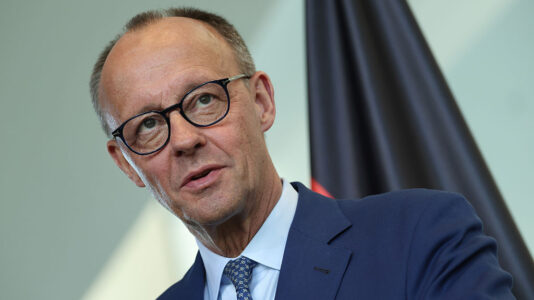‘We must not hesitate’ – German justice minister open to AfD ban
Merz still holds all the cards, and he has harshly rejected an AfD ban, but the dream is far from dead
Federal Justice Minister Stefanie Hubig, of the left-wing Social Democrats (SPD), is keeping the hope for a ban on the Alternative for Germany (AfD) alive, saying a ban should still be on the table.
She told German newspaper Rheinische Post a ban should not be “dismissed for political reasons alone.” She also brushed away concerns that the AfD could “once again portray itself as a victim” if ban proceedings are initiated.
Most of the main German parties have advocated for an AfD ban, including many top politicians from the SPD. However, a vote must first pass in the German parliament, the Bundestag, and then be approved by the Bundesrat, which is represented by the 16 German states. From there, it would need to go to the top German court, the Constitutional Court, which could still reject such a ban as unconstitutional — a risk many opposed to a ban have cited for not moving forward with such a proposal.
The AfD is now the most popular party in Germany for the first time ever, all while debate rages over the party
Hubig acknowledges that the legal hurdles remain high. A ban of the largest opposition party in the country, and one that has reached first place in some polls, would potentially end German democracy, but this is not deterring many from the German political establishment.
Hubig said that it must be examined whether the AfD “is systematically and actively opposing the free democratic order, and whether this can be proven.” She said that if such a finding is determined, the government is obligated to take action.
German democracy still alive? Merz speaks out against AfD ban, says it ‘smacks too much of the elimination of political rivals’
Federal Justice Minister Stefanie Hubig, of the left-wing Social Democrats (SPD), is keeping the hope for a ban on the Alternative for Germany (AfD) alive, saying a ban should still be on the table.
She told German newspaper Rheinische Post a ban should not be “dismissed for political reasons alone.” She also brushed away concerns that the AfD could “once again portray itself as a victim” if ban proceedings are initiated.
Most of the main German parties have advocated for an AfD ban, including many top politicians from the SPD. However, a vote must first pass in the German parliament, the Bundestag, and then be approved by the Bundesrat, which is represented by the 16 German states. From there, it would need to go to the top German court, the Constitutional Court, which could still reject such a ban as unconstitutional — a risk many opposed to a ban have cited for not moving forward with such a proposal.
Hubig acknowledges that the legal hurdles remain high. A ban of the largest opposition party in the country, and one that has reached first place in some polls, would potentially end German democracy, but this is not deterring many from the German political establishment.
Hubig said that it must be examined whether the AfD “is systematically and actively opposing the free democratic order, and whether this can be proven.” She said that if such a finding is determined, the government is obligated to take action.
“Then we must not hesitate,” she said, saying that the Basic Law, the German constitution, is her “compass.”
She also claimed in the same interview that legal action against the AfD should not replace political debate.
“Because many people who vote for this party are not right-wing extremists. As democratic parties, we want to regain their trust,” she claimed, although, her openness to a ban appears to contradict this view.
Even if a ban is voted on, it would likely still take years for the case to be decided by the Constitutional Court. Perhaps even more important is that German Chancellor Friedrich Merz has rejected such a ban, and without his Christian Democrats (CDU), there is no chance for such a ban at the moment.








